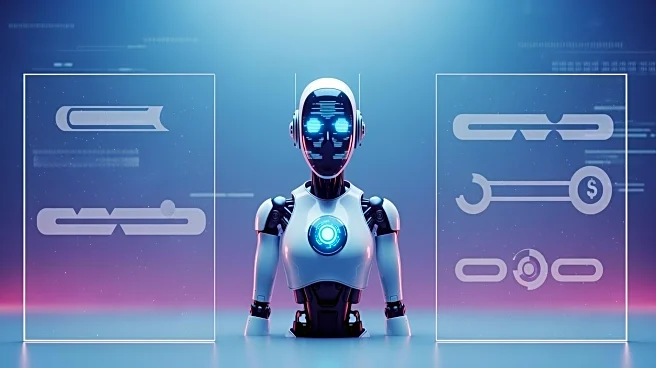What's Happening?
OpenAI's video tool Sora 2 has implemented a ban on using real people's likenesses and copyrighted characters in AI-generated videos. This decision follows backlash from celebrities and rights-holders
over unauthorized use of their images. However, the ban does not cover deceased figures, leading to a 'dead celebrity loophole' where users continue to generate content featuring figures like Robin Williams and Elvis Presley. The legal gray area surrounding posthumous likeness rights leaves families with limited options for recourse.
Why It's Important?
The issue of deepfakes and AI-generated content raises significant ethical and legal questions about privacy, consent, and the use of personal likenesses. The loophole for deceased celebrities highlights the complexities of digital rights management and the challenges in protecting individuals' legacies. As AI technology advances, it becomes crucial to establish clear guidelines and protections to prevent misuse and ensure respect for personal and posthumous rights.
Beyond the Headlines
The situation underscores the need for comprehensive legal frameworks to address the use of AI in content creation. It also raises questions about the balance between free speech and individual rights, as well as the potential for AI to alter public perceptions of historical figures.










